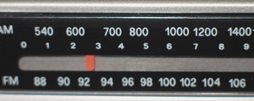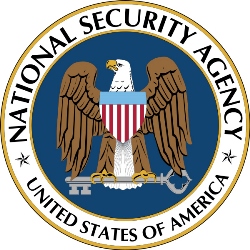4th Cir: Liking on Facebook Is Protected First Amendment Activity
 Some of you may recall a case from Virginia in August of last year concerning whether, in a public sector First Amendment case involving political activities, liking someone or something on Facebook counted as protected First Amendment speech. I said it most certainly did in the ABA Journal at the time, even though the district judge said it certainly did not.
Some of you may recall a case from Virginia in August of last year concerning whether, in a public sector First Amendment case involving political activities, liking someone or something on Facebook counted as protected First Amendment speech. I said it most certainly did in the ABA Journal at the time, even though the district judge said it certainly did not.
Yesterday, the Fourth Circuit made the world right again by finding that liking a candidate’s campaign page on Facebook was in fact protected First Amendment speech.
Here is the link to the 4th Circuit’s decision (2-1) in Bland v. Roberts. And here is the pertinent language from the Court’s opinion:
On the most basic level, clicking on the “like” button literally causes to be published the statement that the User “likes” something, which is itself a substantive statement. In the context of a political campaign’s Facebook page, the meaning that the user approves of the candidacy whose page is being liked is unmistakable. That a user may use a single mouse click to produce that message that he likes the page instead of typing the same message with several individual key strokes is of no constitutional significance.
Bill Herbert has written on these First Amendment issues involving social networking by public employees in Can’t Escape from the Memory: Social Media and Public Sector Labor Law. The article has now been published in North Kentucky Law Review as part of the Law + Informatics Symposium on Labor and Employment Issues. A shout out to Jon Garon, Director of the Law + Informatics Institute at NKU, for organizing this very worthwhile event.

 Time, and the Ninth Circuit, wait for no man. You may recall that I was halfway through my four-part series on the arguments in Joffe v. Google, the “Wi-Spy” case in which Google’s Street View cars intercepted and stored data captured from residential wireless networks. Google argued that that activity did not violate the Wiretap Act, because the Wiretap Act does not apply at all to Wi-Fi. There’s an exception in the Wiretap Act for “electronic communications readily accessible to the general public,” and the Act defines “readily accessible” for “radio communications” to mean that the communications must be encrypted or otherwise protected. Wi-Fi is broadcast over radio, and the plaintiffs did not set up encryption. Here’s
Time, and the Ninth Circuit, wait for no man. You may recall that I was halfway through my four-part series on the arguments in Joffe v. Google, the “Wi-Spy” case in which Google’s Street View cars intercepted and stored data captured from residential wireless networks. Google argued that that activity did not violate the Wiretap Act, because the Wiretap Act does not apply at all to Wi-Fi. There’s an exception in the Wiretap Act for “electronic communications readily accessible to the general public,” and the Act defines “readily accessible” for “radio communications” to mean that the communications must be encrypted or otherwise protected. Wi-Fi is broadcast over radio, and the plaintiffs did not set up encryption. Here’s  A couple of weeks ago
A couple of weeks ago